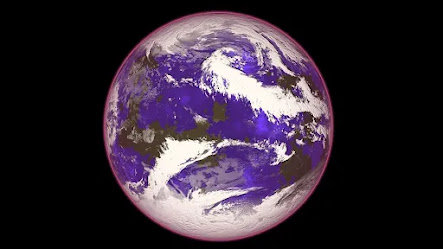Half of the world's population at risk of UV radiation! Scientist discovered big ozone hole
Scientists have remover a large and all-season tropical ozone hole in the lower wind . It is said to be quite large in size. This is as deep as the Antarctic Hole, but 7 times more in area. King-Bin Lu, a scientist at the earth of beating in Ontario, Canada, has reveal this all-season ozone hole. It is explain as the ozone loss zone. The extant of this tropical (tropical) ozone hole can become a cause of concern worldwide. clear the reason for this, Qing-bin Lu said that the tropics account for half of our planet’s surface area and is home to all time half of the world’s people .
In the 1970s, many more researches disclose that the ozone layer, which absorbs most of the ultraviolet radiation from the Sun, may be dried up by industrial chemicals such as chlorofluorocarbons (CFCs). The discovery of the Antarctic ozone hole in 1985 confirmed ozone reduction caused by CFCs. even if ozone depletion has decreased behind the ban on such chemicals, evidence advice that ozone reduction still persists.
reports Describing the dangers of the ozone hole, Qing-bin Lu said that the depletion of the ozone layer can grow UV emission at the ground level, which can grow the risk of skin cancer and cataracts in humans, as well as damage the human immune method . and reduce agricultural fertility . It can touch careful aquatic organisms and ecosystems.
Scientist Lu’s observations of the ozone hole have puzzled the scientific section , as it was not predicted by regular photo chemical models. Reports advice that ozone reduction levels in the equatorial regions are already threatening large people and the UV radiation reaching these regions is must be higher than expected. Scientist Lu says that this discovery can prove to be important for better understanding of climate change all over the world.



No comments:
Post a Comment